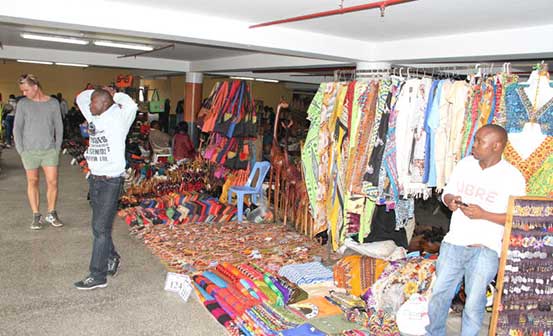×
The Standard e-Paper
Stay Informed, Even Offline

A tourist looks at some of the different ornaments at Nakumatt Junction Mall on Ngong Road. [Edward Kiplimo, Standard]
From a distance, a deep cultural heritage portrayed by colourful African artefacts welcomes you to Nairobi's glorified Maasai market.